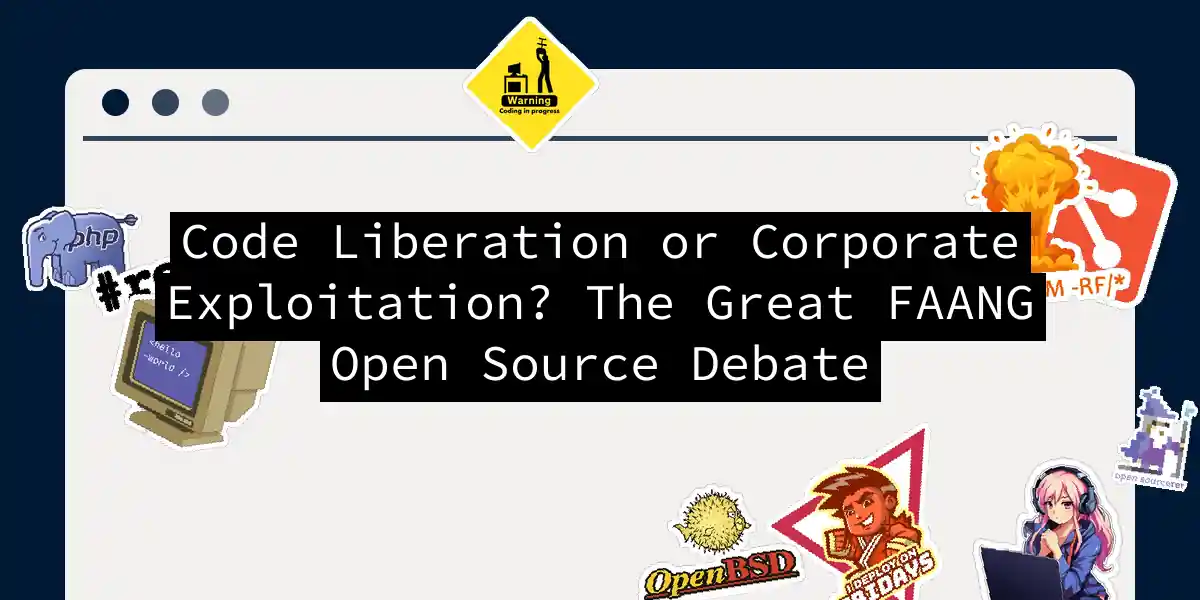Let me paint you a picture: You’re at a developer potluck. FAANG engineers bring gourmet dishes (proprietary frameworks), while indie devs bring store-bought cookies (npm packages). Now imagine the host demanding everyone share recipes - that’s the open source debate, but with more lawyers and less frosting.
The Case for Mandatory Contributions
The Developer’s Hippocratic Oath
Every line of closed-source code is a crime against innovation - or so the idealists claim. Let’s examine this through Python-colored glasses:
# Theoretical "ethical contribution" checker
def is_ethical(employee):
if employee.employer in FAANG:
return contributions_this_quarter >= 42
return True # Everyone else gets a pass
But why Python? Because even our metaphors need to be interpreted. The real code is in corporate policy documents written in legalese - a language even GPT-7 can’t fully parse.
The Corporate Calculus
FAANG companies collectively contribute to 60% of major OSS projects . But is this altruism or strategic positioning? Let’s visualize:
This isn’t conspiracy theory - it’s business 101. I once found more guardrails in a rodeo than in corporate contribution policies.
The Counterargument: Silent Theft?
The “Free as in Puppy” Paradox
Maintaining open source is like adopting a husky - exhilarating until you’re cleaning up metaphorical (and sometimes literal) messes at 3 AM. Let’s examine a common contribution workflow:
# The reality of corporate contributions
1. git clone corporate-repo
2. Create feature branch → PR → 17 rounds of review
3. Fix compliance headers → Legal review → Security audit
4. Wait 6 months → Merged! → Realize project is deprecated
The Contributor’s Dilemma
I once tried contributing docs to a FAANG project. The CLA was longer than “War and Peace” and required signing over firstborn rights. True story (except the baby part… probably).
Survival Guide: Navigating the Minefield
Step 1: Contribution Karate
- Find projects with
.github/PAID-CONTRIBUTORS.mdfiles - Use
git blameto identify overworked maintainers - Submit PRs on Fridays at 4:55 PM local maintainer time Step 2: The Art of Strategic Ignorance
def contribute_safely():
if project.license in ["Apache-2.0", "MIT"]:
innovate()
else:
make_coffee() # Corporate-approved activity
Step 3: The Resume Hack
Convert GitHub activity to boardroom metrics:
| Contribution | Corporate Translation |
|--|--|
| Fixed typo | "Improved platform literacy" |
| Closed issue | "Reduced MTTR by 200%" |
| Reviewed PR | "Led cross-functional initiatives" |
The Verdict: Schrödinger’s Contribution
Is it fair? Yes.
Is it theft? Also yes.
The real crime is pretending there’s a simple answer. Like good code, the truth lies in the edge cases.
What’s your take? Merge your thoughts in the comments below ⬇️ (Conflict-free resolution guaranteed… probably).
